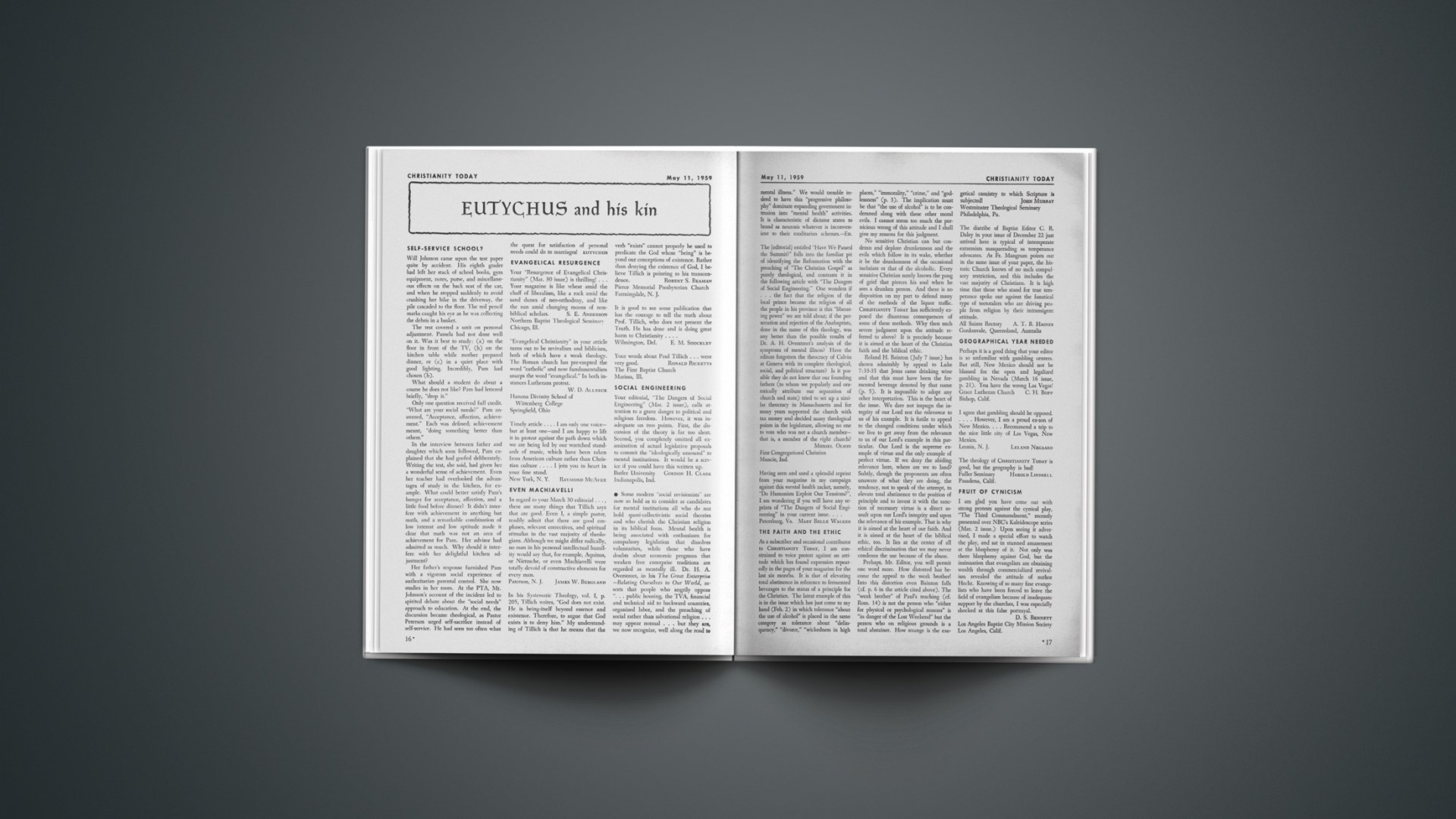One predominant idea, and perhaps the most provocative, resulting from increased discussion of American public education, is that well defined goals are no longer to be achieved. To say that “life adjustment” or “education of the whole man” are satisfactory goals is to cloud the horizon with platitudes.
Caught between a decline of “Deweyism” and an attempt to re-establish “traditionalism” in education, American public education today has a large “gray ghost” area. The future of America in scientific technology and social behavior hinges on what we can do about the goals of public education.
The organization which has long sheltered the “gray ghosts” is the National Congress of Parents and Teachers. Arm in arm with the National Education Association, PTA has limped along on innumerable half-hearted goals for over a quarter of a century.
The end result has been that the organization founded in 1897 as the National Congress of Mothers and dedicated to the welfare of the child in home and school has unwittingly sponsored and underwritten not only a mediocre public educational curriculum but also has created a curious parental neglect of children by making the school responsible for their social and moral development. One recalls the anecdote of a child who, seeing both parents depart for an evening PTA meeting, remarked, “I wish you and Daddy would stop doing so much for us at school and do something with us at home for a change.”
The statement of PTA goals seeks “to develop between educators and the general public such united efforts as will secure for every child the highest advantages in physical, mental, social, and spiritual education.” Another part of the Permanent Platform reads: “Active Spiritual Faith-Religion has a fundamental place in our American tradition as a basic factor in personal and social behavior. Every child has a right to a religious faith.”
In practice this goal is far from specific. In order to offend nobody, this issue is usually not only skirted in discussions but avoided in programs presented to the membership. Eliminating this aim or diluting it beyond recognition, many public school systems in this country have divested American public education of its essentially Christian foundations.
The PTA manual itself illustrates how the ideal of an “active spiritual faith” has been turned into a weapon which is slowly but inexorably stifling any spiritual or moral development that could be part of American public education. On the surface, a Christian climate appears to be favored. For the impact of religious training in character growth is recognized. The manual recommends daily Bible reading, prayers, and grace at mealtime—in the home. The local chairman of this activity (and I would welcome news of a local PTA unit that has such) is to relate some inspirational experience at each PTA meeting. This may take the form of some patriotic expression, or recognition of such organizations as the National Conference of Christians and Jews, and Brotherhood Week sponsored by this group. On the World Day of Prayer, silent prayer may be encouraged. An appreciation of the Bible as literature and history may be fostered. Music and art appreciation are possibilities. Participation in interfaith services may be advocated. Membership in a church or in a “character building” group may be encouraged. United Nations is recommended for support. International education projects may be an outlet requiring “spiritual” activity.
This approach to spiritual problems in terms of general language and broad aims reveals the “cloudy” principles responsible for the vacuous neutralism in spiritual things that characterizes current PTA activities. The local PTA unit is not helped by the recommendations in the manual. There is no “straight and narrow.”
No wonder that neutralism in American public education has advanced to the point where reading the Bible may be held to be unlawful. Secular neutralism is the avowed religion of the public schools today. The PTA, with its back turned upon our Christian heritage, is incapable of leadership. The “gray ghosts” have assumed command.
END
John Wesley Clayton is an experimental taxicologist with the Haskell Laboratory for Industrial Medicine and Taxicology of The duPont Company in Wilmington, Delaware. He holds the M.A. and Ph.D. degrees in zoology from the University of Pennsylvania, where he was assistant instructor, and has been active in P.T.A. affairs in his home community.









